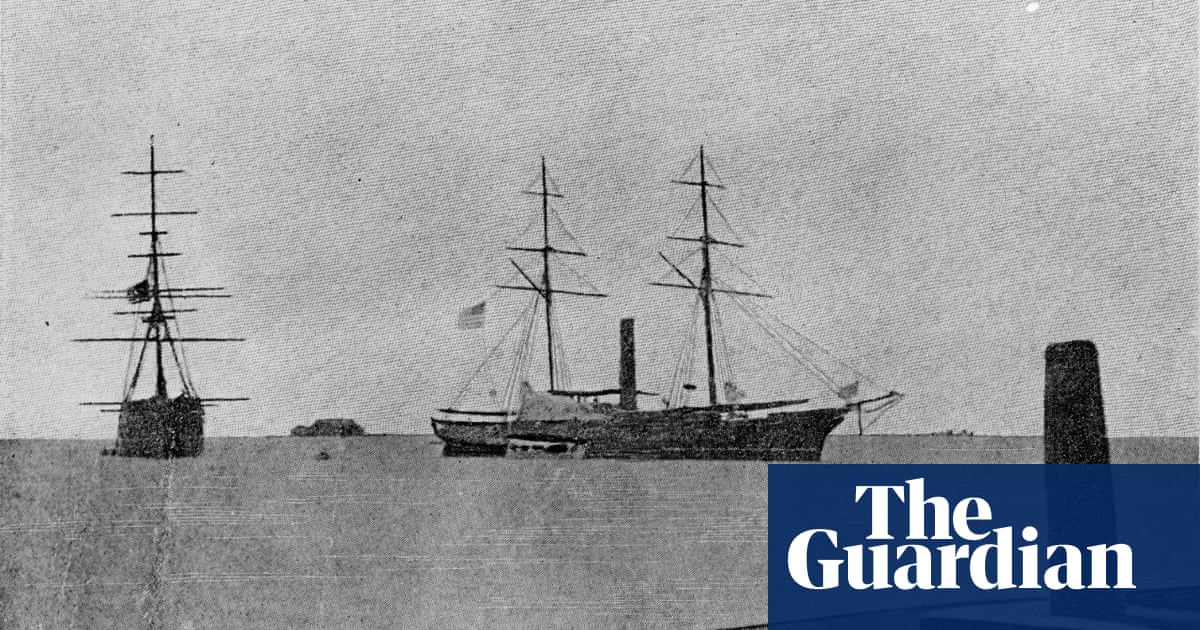In ceremony in Kake, military acknowledges bombardment of village that destroyed it and led to many deaths
In a ceremony Saturday afternoon, the US navy apologized for firing upon and torching the Alaska Native village of Kake in 1869.
Surrounded by tribal Chilkat weavings, historic photographs and other Lingít artwork in the Kake elementary and high school gymnasium, R Adm Mark B Sucato expressed the military’s regret, in the first of two apologies planned by the military for bombardments of Alaska Native communities in the late 1800s.
“This has been 155 years in the making,” said Joel Jackson, the president of the Organized Village of Kake, of the apology to the Lingít (often known as the Tlingit) people. “It’s becoming real because we never talked about it and now we are.”
The event also included remarks from other tribal leaders and elders, a blessing from the tribe and a navy chaplain, and performances by the local Native Ḵéex’ Ḵwáan Dancers and the navy band.
A second ceremony is planned for 26 October, the 142nd anniversary of the navy’s 1882 bombardment of the nearby village of Angoon.



The “Kake War” was initially started by a US sentry kicking a Lingít chief in the butt when he visited Fort Sitka on an invitation.
The chief then disarmed the sentry and walked away with his rifle.
A detachment was sent into the chief’s village, but was repelled by the tribesmen, so the village was put under siege.
They surrendered, but after the surrender, two unarmed Lingít trying to leave in a canoe were killed anyway.
According to their laws and custom, the Lingít demanded retribution in goods for the killing, but were denied, so they captured and executed two fur traders as retaliation.
The USS Saginaw then set sail to “restore order”, found all the Lingít villages deserted and put them to the torch, which killed an elderly woman who had stayed behind, and caused the deaths of many Lingít in the following winter since their stores and hunting canoes were destroyed.